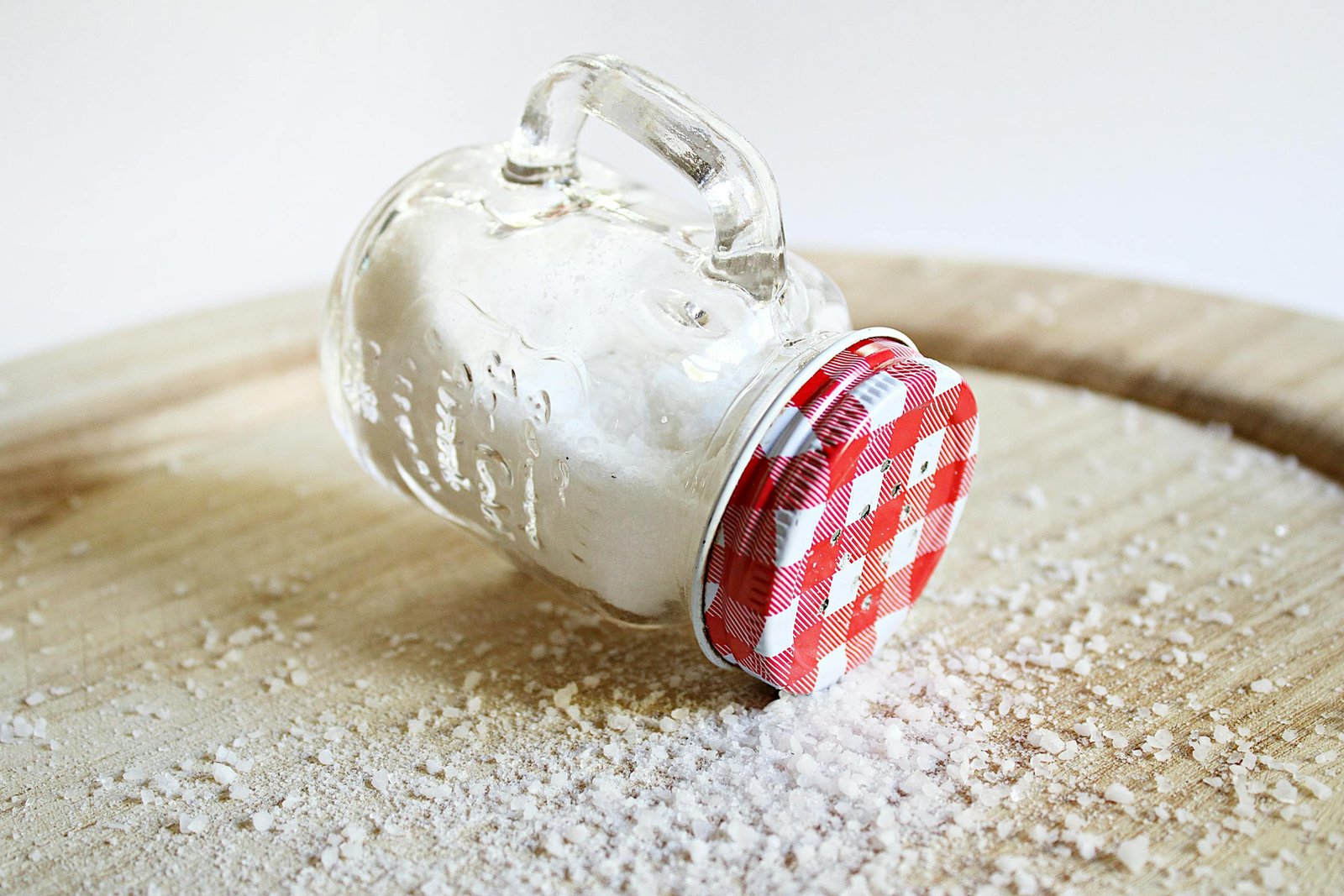Hydrating Foods for Constipation Relief
There are some affiliate links below, but they are all products I highly recommend. For more info, view my disclosure here.
Looking for solutions to beat constipation? Proper hydration is key for relief.
This article explores the benefits of increasing your fluid intake from water, fruits, vegetables, soups and other sources.
You’ll discover how fiber-rich hydrating foods can aid digestion and restore regular bowel movements.
Learn ways to incorporate more high-water foods into your diet, from juicy berries to soothing broths. Plus, the power of hydrating grains and seeds for digestive health.
Arm yourself with practical, natural tactics to overcome constipation through improved hydration and nutrition. Say goodbye to discomfort and restore regularity.
The Importance of Hydration for Constipation Relief
To relieve constipation, it’s important for you to stay hydrated. Drinking enough water throughout the day is crucial for maintaining regular bowel movements. When you’re dehydrated, your body tries to conserve water by absorbing more fluid from the colon, which can lead to dry and hard stools. By staying hydrated, you can prevent this from happening and promote smoother digestion.
In addition to water, you can also include hydrating foods in your diet to further relieve constipation. Fruits and vegetables with high water content, such as watermelon, cucumbers, and oranges, can provide additional hydration and fiber to help soften your stool. Drinking herbal teas, like peppermint or chamomile, can also contribute to your daily fluid intake and have a soothing effect on your digestive system.
Remember to monitor your water intake and aim for at least eight glasses a day. It’s especially important to drink more water if you’re physically active or in hot weather. Avoid excessive consumption of caffeinated or sugary drinks as they can have a dehydrating effect. By prioritizing hydration, you can help alleviate constipation and improve your overall digestive health.
Water-Rich Fruits for a Healthy Digestive System
Eating fruits with high water content can help keep your digestive system healthy. When you consume these hydrating fruits, such as watermelon, oranges, and strawberries, you provide your body with essential nutrients and promote proper digestion.
Watermelon, for example, is made up of about 92% water, which helps soften your stool and prevent constipation. Oranges aren’t only a great source of vitamin C but also contain a significant amount of water, aiding in digestion and preventing dehydration. Strawberries are packed with fiber and water, promoting regular bowel movements and improving overall gut health.
By incorporating these water-rich fruits into your diet, you can keep your digestive system hydrated and functioning optimally. Remember to consume them in their whole form, as juices may lack the necessary fiber and may contain added sugars.
Leafy Greens: Nature’s Natural Laxatives
When you incorporate leafy greens into your diet, they can help promote regular bowel movements and improve your digestive health. Leafy greens, such as spinach, kale, and lettuce, are nature’s natural laxatives. These nutrient-packed vegetables are rich in fiber, which adds bulk to your stool and helps move it through your digestive system more efficiently.
The fiber in leafy greens also acts as a prebiotic, feeding the beneficial bacteria in your gut and promoting a healthy gut microbiome. This can lead to improved digestion and a reduced risk of constipation.
In addition to fiber, leafy greens are also high in water content, which adds hydration to your digestive system. Proper hydration is essential for maintaining regular bowel movements and preventing constipation. By eating leafy greens, you can increase your fluid intake and support optimal digestion.
To incorporate more leafy greens into your diet, you can add them to salads, stir-fries, smoothies, or soups. You can also sauté them with garlic and olive oil for a quick and nutritious side dish. Aim to include a variety of leafy greens in your meals to reap the full benefits of their fiber and water content.
Juicy Vegetables for Smooth Bowel Movements
If you’re looking for a natural way to support smooth bowel movements, consider incorporating juicy vegetables into your diet. These hydrating foods can help keep your digestive system running smoothly and prevent constipation. Vegetables like cucumbers, tomatoes, and bell peppers are packed with water, which can add bulk to your stools and make them easier to pass.
Cucumbers are especially beneficial for promoting regular bowel movements. They’re made up of about 96% water, making them incredibly hydrating. The high water content helps soften your stool and stimulate bowel movements. Plus, cucumbers are low in calories and rich in fiber, making them a healthy addition to any diet.
Tomatoes are another juicy vegetable that can help relieve constipation. They’re filled with water and fiber, both of which are essential for maintaining regular bowel movements. The fiber adds bulk to your stool, while the water helps keep it soft and easy to pass. Additionally, tomatoes are rich in lycopene, a powerful antioxidant that can promote overall digestive health.
Bell peppers aren’t only colorful and delicious but also great for your digestive system. They’re high in water content and fiber, making them an excellent choice for promoting smooth bowel movements. The fiber in bell peppers helps regulate your digestive system and prevents constipation. Plus, they’re packed with essential nutrients like vitamin C and vitamin A, which can support overall gut health.
Incorporating juicy vegetables into your diet is a simple and effective way to support smooth bowel movements. Whether you enjoy them in salads, sandwiches, or as a snack, these hydrating foods can help keep your digestive system healthy and functioning properly.
Hydrating Soups and Broths: Nourishing Your Gut
You can nourish your gut with delicious soups and broths that provide hydration and essential nutrients for a healthy digestive system. When it comes to relieving constipation, staying hydrated is key. Soups and broths aren’t only hydrating but also packed with fiber, vitamins, and minerals that can aid in digestion.
One option is vegetable broth, which is made by simmering a variety of vegetables in water. This broth isn’t only rich in vitamins and minerals but also contains soluble fiber, which can help soften stools and promote regular bowel movements. You can enjoy a warm bowl of vegetable broth on its own or use it as a base for other soups.
Another option is chicken soup, a classic comfort food that can also benefit your gut health. Chicken soup isn’t only soothing but also contains collagen, which can help strengthen the intestinal lining and improve digestion. Additionally, the warm broth can help stimulate bowel movements and relieve constipation.
If you prefer a heartier option, lentil soup is a great choice. Lentils are high in fiber and protein, making them a filling and nutritious option. The fiber in lentils can help promote regular bowel movements and prevent constipation.
Including hydrating soups and broths in your diet can provide the necessary hydration and nutrients for a healthy gut. So, grab a spoon and give your digestive system the nourishment it deserves.
Hydrating Grains and Seeds to Keep You Regular
Now, let’s talk about hydrating grains and seeds that can keep you regular and help with constipation. These little powerhouses aren’t only delicious but also packed with fiber, which is essential for maintaining a healthy digestive system.
One of the best hydrating grains to include in your diet is quinoa. This versatile grain isn’t only hydrating, but it’s also rich in fiber, making it an excellent choice for promoting regular bowel movements. Add quinoa to your salads, stir-fries, or use it as a base for a nourishing grain bowl.
Chia seeds are another fantastic option to keep things moving smoothly. These tiny seeds are loaded with fiber and can absorb a significant amount of water, forming a gel-like consistency that helps to soften the stool and ease constipation. Mix chia seeds into your yogurt, smoothies, or sprinkle them over your oatmeal for an added fiber boost.
Flaxseeds are also worth mentioning as they’re rich in both fiber and omega-3 fatty acids. These little seeds act as a natural laxative, helping to relieve constipation and promote regularity. Add ground flaxseeds to your baked goods, sprinkle them over salads, or mix them into your morning cereal.
Incorporating hydrating grains and seeds into your diet can be an excellent way to stay hydrated and support a healthy digestive system. So why not start adding these delicious and nutritious options to your meals today? Your gut will thank you!







